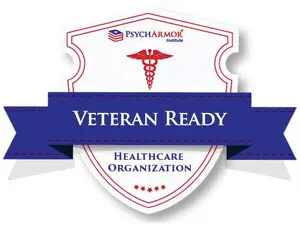Moving Past Adverse Childhood Experiences
It’s only been in the last few decades that mental health professionals connected the dots between behavioral illness, addiction, and childhood trauma. This groundbreaking research sheds essential light on some shadows affecting our well-being. If you suspect you have some unresolved issues with adverse childhood experiences, moving past them puts you on a more solid journey of health and peace.
What Are Adverse Childhood Experiences?
Adverse childhood experiences (ACEs) refer to potentially traumatic events that occur during childhood or adolescence. They can have significant and long-lasting impacts on a person’s physical health, emotional and mental health, social functioning, and overall welfare.
In the 1990s, physicians and research leaders Robert F. Anda and Vincent J. Felliti partnered with Kaiser Permanente to provide qualitative information on the impact of childhood and adolescent trauma. The goal was to determine how ACEs affect brain development, mental and emotional coping abilities, relationship bonding, how the body responds to stress, long-term health factors, and other essential aspects of life.
Here are some facts about ACEs from the Centers for Disease Control and Prevention, which we provide verbatim:
- ACEs are common. About 64 percent of U.S. adults reported they had experienced at least one type of ACE before age 18, and more than 17 percent reported they had experienced four or more types of ACEs.
- Some people are at greater risk of experiencing once or more ACEs than others. While all children are at risk of ACEs, numerous studies have shown inequities in such experiences linked to the historical, social, and economic environments in which some families live. ACEs were highest among females, non-Hispanic American Indian or Alaska Native adults, and adults who are unemployed or unable to work.
- Preventing ACEs could potentially reduce many health conditions. For example, by preventing ACEs, up to 1.9 million heart disease cases and 21 million depression cases potentially could have been avoided.
Anda and Felliti developed the ACEs Questionnaire to help people identify 10 traumatic experiences. ACEs are typically categorized into three main types: abuse, neglect, and household dysfunction. Here’s a detailed breakdown of each category.
Abuse
- Physical. This involves harm or injury by a parent, caregiver, or another adult figure. It may include hitting, punching, kicking, burning, or any other form of physical violence.
- Emotional or psychological. These are behaviors or actions by adults that harm a child’s self-esteem, emotional well-being, or social development. This may include verbal insults, constant criticism, rejection, or threats of violence.
- Sexual. This involves any form of sexual contact or behavior between an adult and a child, such as inappropriate touching, fondling, penetration, or exposure to sexual acts.
Neglect
- Physical. This occurs when a child’s basic needs for food, shelter, clothing, hygiene, and medical care aren’t adequately met by caregivers.
- Emotional. Defined as the failure of caregivers to provide the necessary emotional support, love, and nurturing that children require for healthy psychological development. It may involve emotional unavailability, indifference, or lack of affection.
- Educational. This occurs when caregivers fail to ensure children receive appropriate schooling or educational opportunities.
Household Dysfunction
- Domestic violence. Exposure includes witnessing or being aware of physical, verbal, or emotional abuse between adults in the household.
- Substance abuse. Living in a household where one or more adults abuse substances, such as drugs or alcohol, can have profound effects on a child’s well-being and safety.
- Incarceration. This relates to a child with a primary parent or guardian housed in the justice system.
- Mental illness. Growing up in an environment where one or more caregivers struggle with mental illness can contribute to instability, neglect, or emotional abuse within the household.
- Parental separation or divorce. The breakdown of parental relationships through separation or divorce can be traumatic for children, particularly if it involves conflict, violence, or abandonment.
It’s important to note that ACEs are not limited to these specific categories—others include war, terrorism, bullying, and the effects of natural disasters, to name a few.
Research indicates that the impact of ACEs has profound and long-lasting effects on physical health, mental health, and social functioning. They’re associated with an increased risk of various health problems, including chronic diseases, mental health disorders, substance abuse, and interpersonal difficulties. Additionally, ACEs can impact brain development, stress response systems, and social and emotional skills—influencing behavior and functioning throughout your life.
Moving Past ACEs as an Adult
If you suspect you have addiction or mental health problems due to ACEs but haven’t heard of this concept before, there are some healing steps to take. Here are some recommendations from ACEs Too High.
- Take the ACEs questionnaire so you have a better idea of some underlying causes and share your responses with a behavioral health professional. Then, work on a therapeutic partnership to address key issues.
- Journal about your past experiences or follow psychologist John Pennebaker’s therapeutic writing approach to better identify what circumstances cause grief, trauma, anger, joy, and other reactions in daily life.
- Develop a mindfulness meditation practice to downshift your stress response. Yoga helps, too.
- Try methods such as EMDR therapy, brainspotting, and neurofeedback to retrain your brain to not default to traumatic pathways.
Seabrook: Proud to Serve Those Who Served
Everyone has a past, but there’s no reason to let it cloud your future forever. At Seabrook’s four award-winning addiction treatment centers in New Jersey, we specialize in creating a customized balance between evidence-based medical treatment and holistic therapies to give you the best outcome for your recovery. If you’re ready to move beyond your experiences, call us today to learn how we can help.




